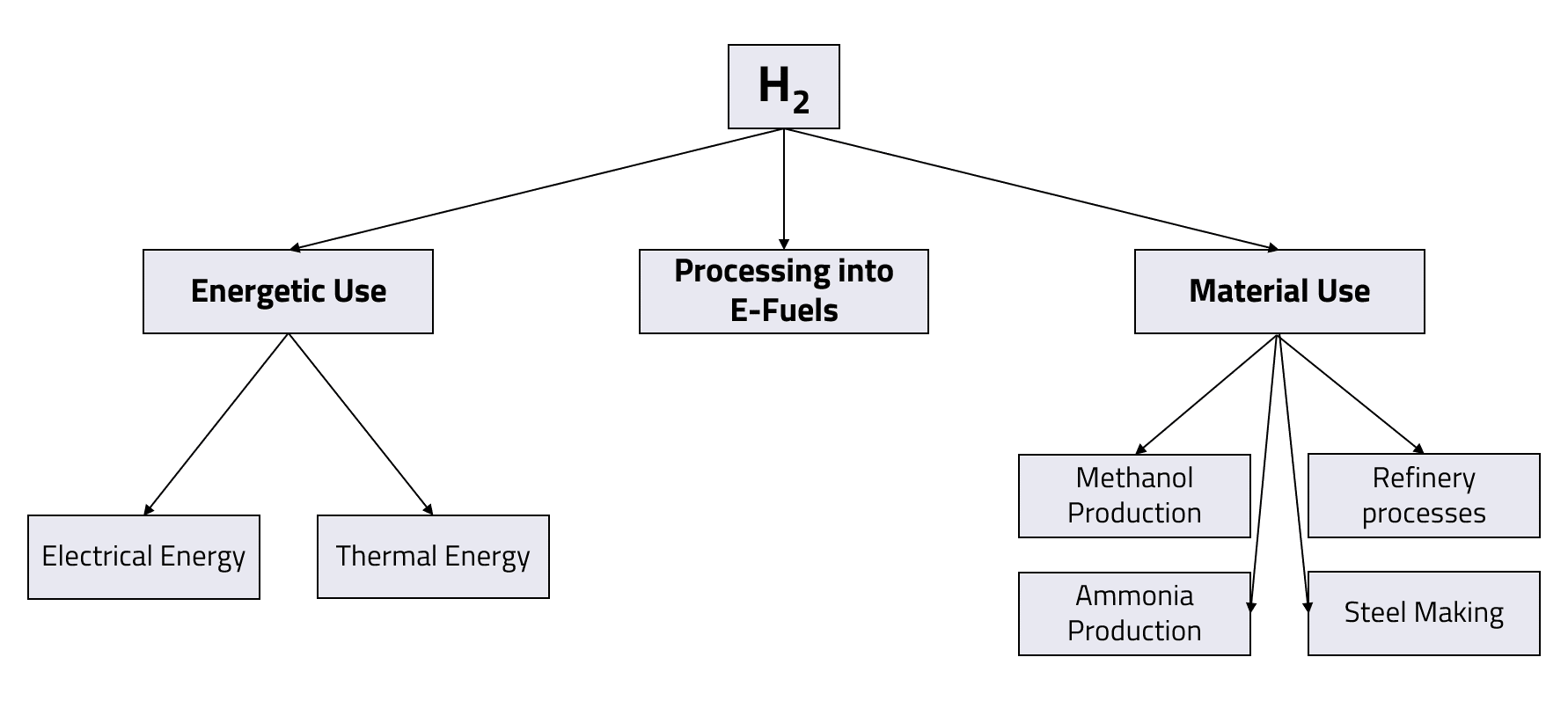4.1 Technical Principles and Status Quo
4.1 Technical Principles and Status Quo
This chapter discusses the applications of hydrogen, focusing on its energetic and material uses. Material use involves utilizing hydrogen's chemical properties for reactions with other elements, while energetic use converts hydrogen's energy into electricity and heat. The production of e-fuels is mentioned briefly. Hydrogen is mainly used as a material in the chemical industry and crude oil refining. Future applications in industries like steelmaking and plastics production are also explored.
Technical principles of hydrogen utilization
Hydrogen can be used in a variety of applications. Basically, a distinction can be made between its energetic application and its use as a material. In material use, the chemical properties of the hydrogen molecule are exploited in the form of reactions with other chemical elements. Thus, hydrogen can be used to form new chemical compounds together with other elements or to change the composition and properties of existing compounds. On the other hand, hydrogen can be used to generate energy. Here, the chemical energy bound in the hydrogen is converted into electricity and/or heat.

The production of such e-fuels is not discussed further in this course. You can find detailed information on e-fuels here: